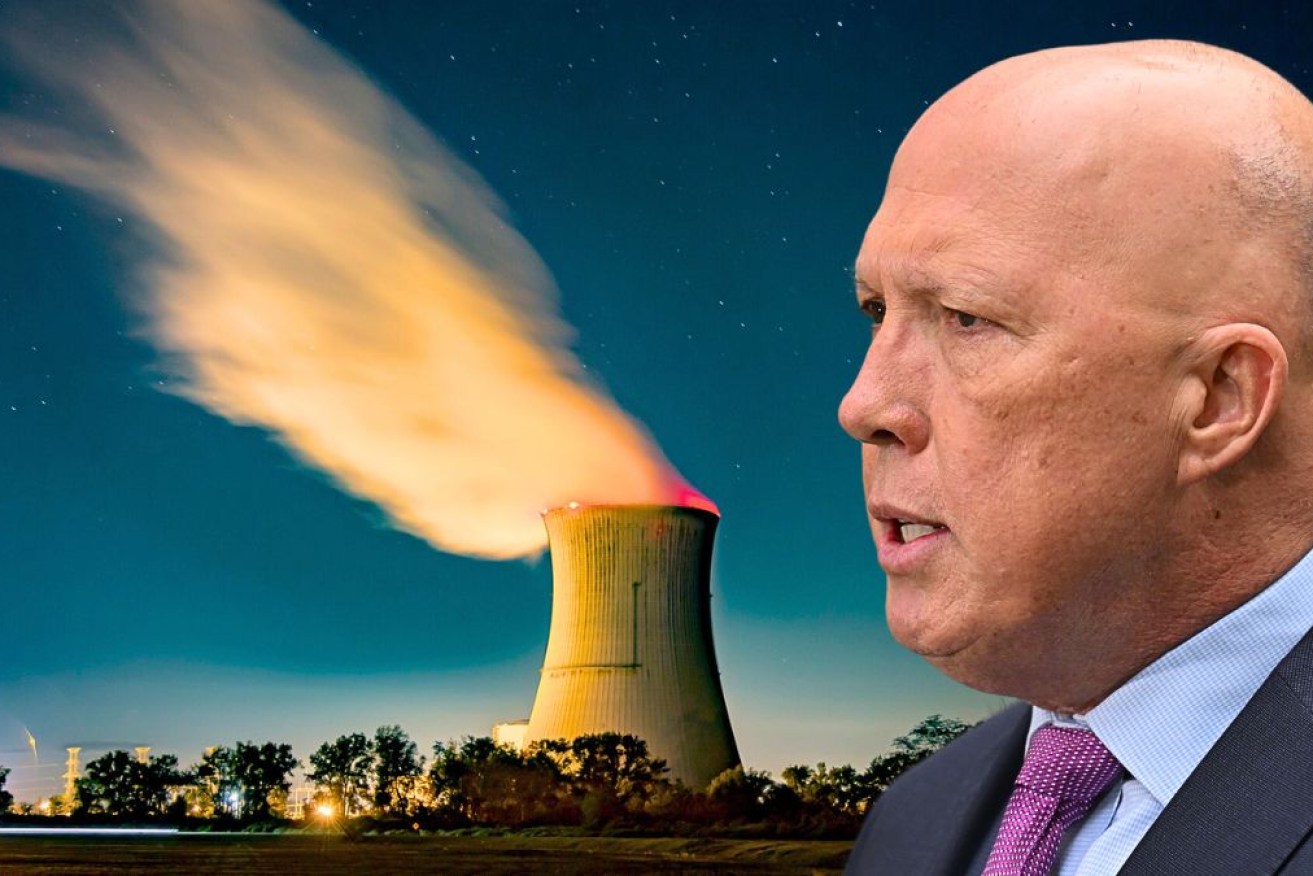Extract from The New Daily

The Opposition’s focus on nuclear could hurt it in the longer term, Paul Bongiorno writes. Photo: TND
Peter
Dutton’s Coalition ally, Nationals leader David Littleproud, gave the
game away in a morning TV interview when he linked the Opposition’s
rekindled fervour for nuclear energy to the survival of the coal
industry.
It should come as no surprise because Littleproud has been under pressure in his own party room from the likes of Barnaby Joyce and other coal champions pushing for the Opposition not to adopt more ambitious interim emissions reduction targets, and even to abandon the commitment to net zero by 2050.
Littleproud was attempting to rebut Climate Change and Energy Minister Chris Bowen’s claims that investors weren’t interested in stumping up their own money to build nuclear power plants in Australia.
The Nationals leader said he’s already met one would-be investor “that owns a metallurgical coal mine in central Queensland. They believe if they ran their mine off SMR (Small Modular Reactor), they get a 14 per cent premium for their coal to export around the world and pay for itself”.
Apart from the spurious claims for the yet-unavailable commercially viable SMRs anywhere in the world, we also should remember the same David Littleproud was recently calling for a stalling in the rollout of renewable energy.
Dutton is due to embellish his dream of a nuclear-powered Australia at a business summit in Sydney on Tuesday.
Climate action demands
Both Coalition leaders are politically tone deaf to the demands for more climate action now and criticism of the government for not doing enough.
The latest The Australian Financial Review/Freshwater Strategy poll found 83 per cent of respondents supported producing more energy from solar, well ahead of natural gas, onshore and offshore wind each on 56 per cent.
Hydrogen was next on 46 per cent, then nuclear on 36 per cent, with coal last on 33 per cent.
There is no doubt when a major party leader throws their weight as enthusiastically behind a policy as Dutton now is with nuclear it influences a good number of their camp followers but by no means all of them.
The nuclear cheer leading is attention grabbing but it smacks of being crazy brave when it, along with coal, are the least popular options.
Claims unravel
The unravelling of the Opposition’s credibility on urgent climate action was starkly in evidence when shadow minister Ted O’Brien on the weekend was forced to admit there could be no nuclear energy without massive government subsidy – putting him at odds with Littleproud’s “let the market decide”.
O’Brien also claimed experts say it would take only three to five years to build an SMR or six to 12 years to build a big reactor.
Chris Bowen said there were plenty more experts with opposing views, with real-life experience seeing SMRs abandoned and Britain’s Hinkley Point C large nuclear reactor massively behind schedule and over budget.
The other surefire giveaway that the Coalition’s more-than-decade-long climate denialism is far from dead and buried is the determined effort to paint the government’s long-overdue fuel efficiency standards as a “ute tax”.
Bowen is wise not to let this absurd scare go unchallenged.
Overblown claims made by sections of the car industry lobby that the standards will push up the price of Australia’s most popular SUVs and utilities.
Never mind that these increasingly intrusive road monsters attract the extremely generous instant asset write off, a concession costing the budget millions in the name of business incentives.
There is no talk of the government trimming this lurk. The subsidy will more than offset any unlikely vehicle price increase.
Fuel cost savings
Grattan Institute analysis finds any increase would be minimal, about 1 per cent, while government figures show motorists would save as much as $1800 a year in fuel costs.
Bowen released on the weekend an electorate-by-electorate analysis of the significant fuel cost savings his new standards will bring.
The Coalition finds itself championing vested interests that put Australia’s interests last.
Car makers like Toyota and Mazda manufacture millions of vehicles for markets in Europe and North America that meet the standards Bowen is proposing, and yet are crying foul when our government demands they stop dumping dirtier, inefficient versions of their models in Australia.
How can any alternative government defend this practice when, according to government analysis, new passenger cars in Australia use 15 per cent more fuel than in New Zealand, 20 per cent more than in the US and 40 per cent more than in the European Union?
Dutton’s stated strategy of regaining government by ignoring climate change-sensitive voters in metropolitan seats in favour of those in the outer suburbs and regions is shaping as a major miscalculation.
The latest data from the Electric Vehicle Council shows the biggest increase in orders for top-selling brands, Tesla and BYD, account for three-quarters of all EV sales and they come from these areas.
Petrol price hikes are credited as major factors behind motorists with longer drives to work switching.
The ABC interviewed one motorist living on the Mornington Peninsula south-east of Melbourne saying he had saved between $5500 and $6000 on petrol and servicing in the year since purchasing his EV.
Action imperative
Bowen’s standards will apply to new cars from 2025, with manufacturers attracting a fine if they do not meet them. To avoid this they will be able to buy credits from EV makers.
This should be a powerful incentive for car makers to bring in more hybrids and EVs.
Bowen says it would be a win for everyone.
Getting on with emissions reduction is no longer a radical idea but an imperative.
The risk for the Dutton opposition is that it is seen to be out of sync with the national mood.
Paul Bongiorno AM is a veteran of the Canberra Press Gallery, with more than 40 years’ experience covering Australian politics
No comments:
Post a Comment